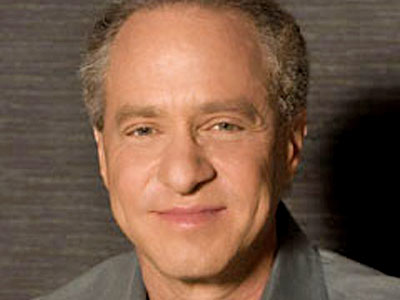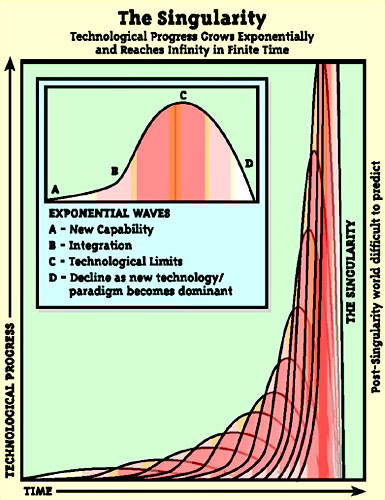|

by Alyson Shontell
July 16, 2012
from
SFGate Website

Ray Kurzweil
Ray Kurzweil, a world-renowned
scientist and author of
The Singularity is Near, thinks the
world as we know it will be unrecognizable in 20 years.
One of the changes he thinks are possible: Scientists may finally
crack immortality.
"I and many other scientists now
believe that in around 20 years we will have the means to
reprogram our bodies' stone-age software so we can halt, then
reverse, aging," he
writes in The Sun.
"Then nanotechnology will let us
live for ever. Ultimately, nanobots will replace blood cells and
do their work thousands of times more effectively."
Kurzweil, whose fans include
Bill Gates and
Bill Clinton, makes a number of
other substantial claims, such as humans being able to replace all
failing organs with artificial ones.
He says we'll be able to scuba dive for
hours without oxygen, and write entire books within minutes thanks
to advanced
nanotechnology.
Oh..., virtual sex will also be commonplace in the
not-so-distant future.
Kurzweil's absurd-sounding proclamations stem from the fact that
technological progress is growing at an exponential rate.
"Computer technology and
our understanding of genes -
our body’s software programs - are accelerating at an
incredible rate," he writes.
His theory of the Law of Accelerating
Returns, suggests there will be another "billion-fold" increase
in technology over the next quarter century.

"In reality, the time needed for
technology to double is constantly decreasing," Inc's Kevin
Bailey explains.
"The next thing to realize with an
exponential curve, is that at a certain point progress relative
to time skyrockets up.
The increase in technology that once took
20 years now takes 10, and then 5, and then 2.5, and then 1.25,
and then .75 years, and then on and on. Kurzweil claims that we
are right at the beginning of the sharp upturn that's
characteristic of exponential curves."
Kurzweil thinks we're just beginning to
tap into the possibilities artificial intelligence can bring, and
the advancements will only get more wild.
We're already using it in small ways to
help us land airplanes and conduct searches on Google.
"These technologies should not seem
at all fanciful," says Kurzweil.
"Our phones now perform tasks we
wouldn’t have dreamed possible 20 years ago. When I was a
student in 1965, my university’s only computer cost £7million
and was huge."
Kurzweil concludes,
"We can look forward to a world
where humans become cyborgs, with artificial limbs and organs."
|



